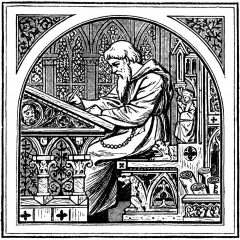In the first of two blog postings I want to examine where faith as I have experienced it, has made an impact on my own personal life and in particular the period following serious illness in 2008-2009, at which point I began the journey which brought me back to faith in Jesus Christ our Saviour.
The first area where faith has had a big impact on my personal life is through my chaplaincy duties with the West Midlands Police and Fire Services whom it is my immense privilege to serve. The other is through supporting those living with neurological illness, specifically Motor Neurone Disease or MND. Admittedly my association with MND started before my journey with Christ re-asserted itself. However, looking back over the past dozen or so years (including my time studying Theology at the Queen’s Foundation in Birmingham), I now recognise that God has called me to this kind of work even though I had not always realised it at the time. This goes to prove that God may indeed have a plan for all of us but is not always very good at keeping us in the loop, very often leaving us to “find out for ourselves” after a period of interaction – and sometimes, often painful reflection. This first blog will focus on my chaplaincy duties with the police and fire services.
One of the privileges of being a Blue Light Chaplain, is that I get to see at close hand how ordinary people from the same social and economic background as most of the rest of us, are doing a quite extraordinary job on behalf of our local communities. A job which is both rewarding and harrowing in equal measure. Where the best and worst of humanity can often be seen during the same incident.
I have often been told by some firefighters and police officers that they are not particularly religious, and this is partly down to the things they witness on the jobs they have to attend. I always respond with, “I get that”, as do most of my fellow chaplains. It does take an incredible and sometimes unshakeable mental resilience to cope with some of the things they witness, and to ask them to believe in a God who is good and wonderful probably stretches their credulity just that bit too far. One police officer I know publicly stated that being a copper means you end up hating people. From my own limited experience, I find this understandable given the increasing number of assaults they endure as well as the verbal abuse and lack of respect from certain sections of the public. Add to this mix the criticisms aimed at them – sometimes with justification – by the media and politicians, intent on exacerbating the negative and ignoring the positive aspects of policing today, it is no wonder many are often left feeling disillusioned or worse.
Similarly, firefighters usually seen as having a more positive profile among the general public, find themselves increasingly being attacked while attending incidents (shouts) sometimes by the same people who called them out to deal with the particular incident in the first place – arson in buildings and car fires being a prime example. Paramedics too, when they get a call to certain addresses sometimes have to ask for either a police escort before attending or send the police in ahead to check that the area is safe for them and their intended patients. Attending road traffic collisions and having to extract both the injured and the already dead from the wreckage often creates its own trauma in the minds of all those emergency services workers who are present. While provision is made for these traumatic incidents to be discussed and analysed within each service either led by dedicated professionals or carried out internally among the group, the presence of a chaplain with a sympathetic listening ear at some point in the process, can be like a balm applied to an open wound. Providing a soothing presence perhaps before the main business of debriefing and analysing what the operatives have witnessed takes place.
Chaplains by their very nature especially within the policing service often loiter with intent, a visible presence providing reassurance that if needed a quick chat with the Padre can also be of immense value which applies to all aspects of policing from response units, control rooms, community and neighbourhood policing teams, offender management, CID, custody officers, even senior leadership team members where appropriate to do so. A friend of mine who was chaplain at another midlands fire service told me once that more often than not, it will be the non-job issues that they will want to chat to you about rather than the job-related ones. Thus far the picture for me is somewhat mixed: gripes about the job are commonplace wherever you go, but for people often forced into making split-second decisions which could have far reaching consequences, having some form of release valve has never been more important.
The confidentiality offered by a chaplain’s presence can often make a significant difference to a person’s current and future wellbeing. It is a sign that a life lived in the faith of Our Lord, following his teachings to love our neighbour as ourselves, can have a significant impact on those whom he has chosen to put in front of us.
It is an immense privilege being a blue light chaplain, I hope to remain one for many more years to come.
